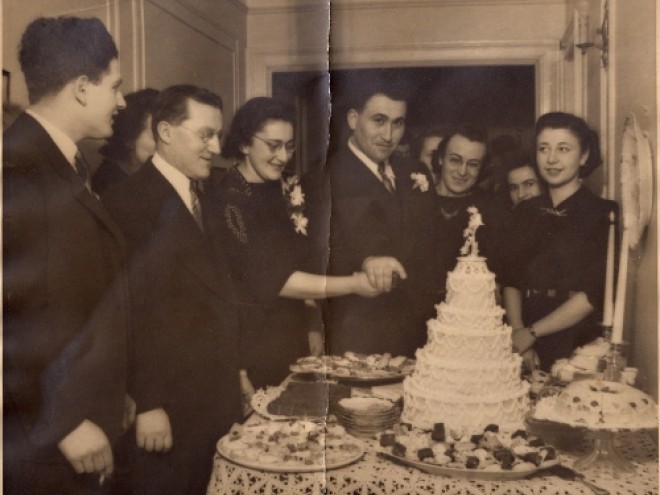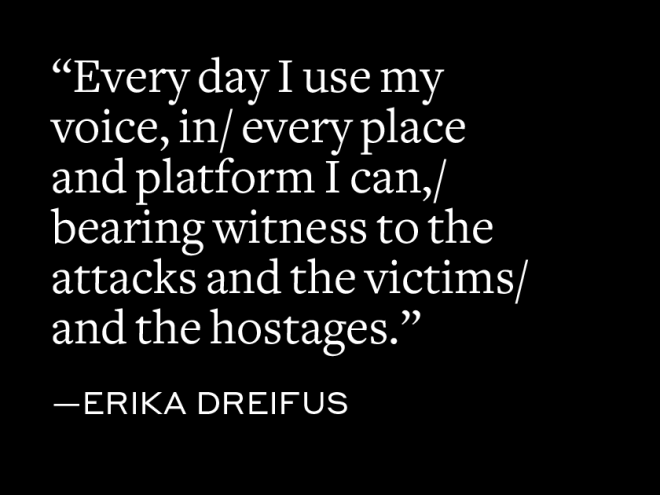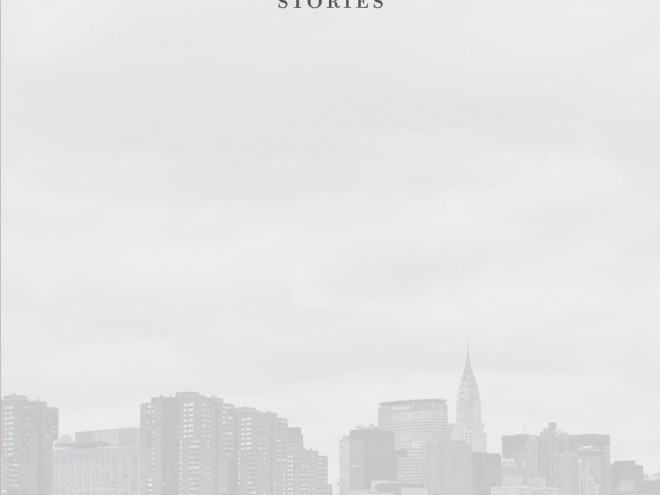Author Erika Dreifus sets the groundwork for Quiet Americans with two essential quotations. “It doesn’t end. Never will it end,” observed Günter Grass. Asked Imre Kertész: “Which writer today is not a writer of the Holocaust?”
In this engaging debut collection, the Holocaust is indeed omnipresent. Though often unacknowledged and out of sight, it deeply informs Erika Dreifus’s deceptively calm short stories. The prose style throughout is intimate and carefully observed. Several of the stories are interconnected. They range in time and setting from tiny Altheim at the edge of the Black Forest, in 1914, to Mount Sinai Hospital on the Upper East Side of Manhattan in the present century. Dreifus ably interweaves the events of everyday Jewish life, including births, parenthood, ritual circumcision, postpartum depression, grandparenthood, family squabbles, with aptly selected period details: an online genealogy site, Shabbos elevators, the murder of Israeli athletes at the 1972 Munich Olympics, DP camps, sonograms, Starbucks, invidious anti- Semitism in the spiel of a Stuttgart tour guide, even a Zabar’s mug.
Judith Felsenfeld book of short fiction, Blaustein’s Kiss, was published in April, 2014. Her stories have appeared in numerous magazines and literary reviews, including The Chicago Review, The Southwest Review, Blue Mesa, and broadcast nationwide on NPR’s Selected Shorts.
Discussion Questions
provided by Erika Dreifus
- Which characters seem to you to most resemble “Quiet Americans”? How does their “quietness” affect plot points and/or other characters in their respective stories? On the other hand, are there characters that impress you as decidedly “unquiet”? What is their impact?
- Which character(s) do you feel closest to? Why?
- In many respects, the stories in are “Jewish” stories. They feature Jewish characters and families; they incorporate Jewish ritual and Hebrew and Yiddish words; they are attentive to Israel; and in drawing inspiration from the author’s own family history — particularly the experiences of her paternal grandparents, German Jews who immigrated to the United States in the late 1930s — they are, in a sense, an authorial response to the Judaic imperative to remember (). Are these stories Jewish in any other ways? What is their accessibility to or relevance for readers who aren’t Jewish?Quiet Americans zachor
- In “For Services Rendered,” we learn that Klara Weldmann had “wanted to leave Germany for years, already. [Ernst] was the one reluctant to abandon the land of his ancestors.” Later, in “Mishpocha,” a member of the Second Generation online discussion group to which David Kaufmann belongs wonders why his own father’s family didn’t flee “when the Germans were on their doorstep” and receives this response from another participant: “‘It was their home. What can move you to leave your home?” Can you imagine any circumstances that might compel you to leave your home(land)? What might they be?
- “Matrilineal Descent” concludes with the information that Emma Gross was “für tot erklärt seit 30 Oktober 1940,” or assumed dead since the day she was deported (to an extermination camp). How did you react to the news of this character’s fate?
- Why might the author have chosen “Lebensraum” to title a story set in Iowa in 1944?
- A significant portion of “Homecomings” involves the murder of Israeli athletes at the Munich Olympics in 1972. If you remember this event, what are your recollections? If you know the history only through books, films, etc., how does the portrayal in “Homecomings” compare?
- “Floating” is the first of the stories into be set in the 21st century, and unlike the three stories that precede it, “Floating” does not include members of the Freiburg family among its characters. How does “Floating” connect — thematically or otherwise — with the rest of the book? In a broader sense, how do the seven stories work as distinct and individual pieces, and how do they work combined to form a single book? Quiet Americans
- In “The Quiet American, Or How to Be a Good Guest,” a Jewish-American granddaughter of refugees from Nazi Germany travels to her grandparents’ native country in the summer of 2004. She reflects: “You are an American. You are a grown-up. What’s to worry about? Even now, even this summer of 2004, when your own homeland needs security, and every time you watch the news you’re afraid you’ll hear about another suicide bombing on a bus in Israel.” What do these sentiments suggest about complexities of Jewish-American identity in the 21st century?
- “Mishpocha” concludes with David Kaufmann reaching out to a newly-discovered genetic relative. What do you envision happening after David’s message is received? (If you’d like, why not try to write the next scene?)




